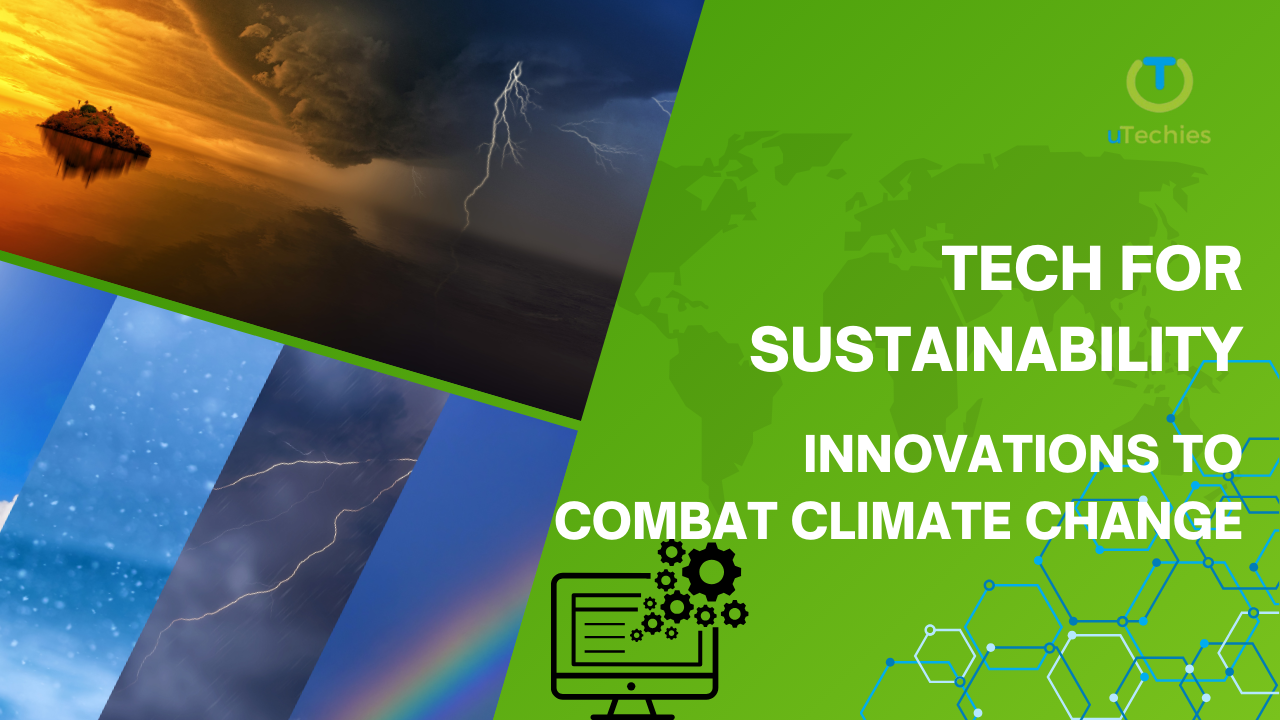The pressing challenges of climate change demand innovative solutions, and technology has become a vital force in advancing sustainability. Across industries, groundbreaking advancements are transforming environmental practices, business operations, and societal habits. This blog delves into the transformative role of technology in driving sustainability and tackling climate change.
1. Leveraging Artificial Intelligence for Sustainability
Artificial Intelligence (AI) is reshaping how we address climate challenges by streamlining energy use and improving environmental management.
- Optimizing Energy Use: AI-powered energy systems and smart grids predict consumption trends and adjust energy supply dynamically. These advancements reduce energy wastage, minimize dependency on fossil fuels, and facilitate the integration of renewable energy sources.
- Reducing Emissions: In agriculture, precision farming driven by AI lowers the usage of pesticides and fertilizers, enhancing crop yields with a reduced environmental footprint. Similarly, predictive maintenance in industries prevents equipment malfunctions that could lead to pollution.
2. Advancements in Renewable Energy
Renewable energy innovations are crucial for decreasing carbon footprints and driving the shift away from fossil fuels.
- Solar and Wind Power: Cutting-edge photovoltaic panels and advanced wind turbines efficiently harness natural energy, providing clean alternatives to traditional power sources.
- Carbon Capture and Reuse: Carbon capture and utilization (CCU) technologies convert CO2 emissions into valuable resources such as synthetic fuels and construction materials, promoting a circular carbon economy essential for climate objectives.
3. Enhancing Transparency with Blockchain
Blockchain technology ensures accountability and transparency in supply chains by recording transactions in a secure, tamper-proof manner. This innovation enables businesses to validate product origins and uphold ethical standards, bolstering their sustainability credentials. Companies like IBM and AWS are leading the charge by integrating blockchain into their Environmental, Social, and Governance (ESG) frameworks.
4. Innovations in Urban Planning and Infrastructure
Technological advancements are paving the way for smart cities designed to minimize carbon footprints and optimize resource utilization.
- IoT for Resource Management: The Internet of Things (IoT) gathers real-time data for better management of energy, waste, and water resources, significantly improving urban efficiency.
- Eco-Friendly Construction: Using 3D printing, affordable and sustainable housing solutions are being developed. These methods incorporate innovative materials that reduce the carbon emissions typically associated with construction processes.
5. Climate Technology Driving Change
From agriculture to conservation, climate technologies are tackling diverse environmental challenges.
- Drones for Ecosystem Monitoring: Equipped with advanced sensors, drones gather crucial data for conservation strategies, helping protect ecosystems and biodiversity.
- Sustainable Agriculture: Innovations like water-efficient irrigation systems and climate-resilient farming techniques contribute to more sustainable agricultural practices.
6. Collaboration for a Greener Tomorrow
Partnerships between the public and private sectors play a pivotal role in scaling sustainable technologies. For instance, Google is leveraging AI to disseminate climate-related information while striving to achieve net-zero emissions through the use of 24/7 carbon-free energy. Collaborative efforts like these highlight the potential of teamwork in addressing global climate challenges.
Conclusion
The synergy between technology and sustainability offers a powerful approach to combating climate change. By adopting innovations such as AI, renewable energy solutions, blockchain, and smart infrastructure, we can pave the way for a more sustainable planet. However, realizing their full potential requires collective action and cross-sectoral cooperation to ensure a healthier, greener future for all.






